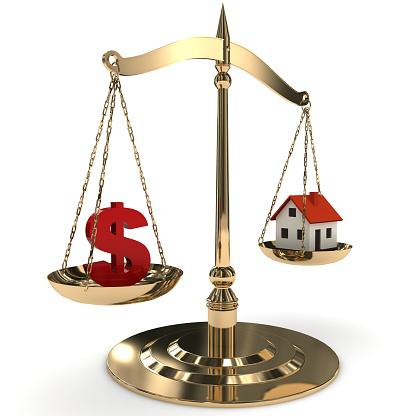Home value estimate is and how it's calculated
A home value estimate provides an approximate value of a residential property based on recent market data. To deliver this estimation, calculations will be drawn from factors such as the characteristics of the property itself, spatial information from local area comparable properties, and current market activity within the surrounding area. This valuable information may help homeowners to determine how much their property can or should be worth. Home values can also be evaluated by real estate professionals such as appraisers to assess the fair market value of a property when necessary.
The difference between a real estate agent's home value estimate and an appraisal
When selling a home, most homeowners want to know its approximate market value before listing it. Real estate agents may provide what is known as a comparative market analysis (CMA), in which they recommend a fair price range for the property based on comparable sales in the area. This is obviously not a guarantee of what the house will actually sell for, but rather an estimate informed by industry knowledge and local expertise. On the other hand, having a professional appraisal conducted by a qualified expert could give more precise results — although one should be aware that appraisal fees can be substantial. An appraisal is usually required by lenders when taking out a mortgage, and in certain cases it could even recommend asking prices or list values significantly above those suggested by real estate agents. Regardless of which option you choose, understanding the difference between an agent’s home value estimate and an appraisal could prove useful when planning to sell your property.
The benefits of getting an appraisal
Getting an appraisal is a great way to ensure you are buying or selling a property for the right price. It helps you to get an independent, expert opinion of the value of the property from a professional appraiser. Furthermore, it can provide useful information on any particular features and upgrades that may add or detract from the property's value. Appraisals also allow both buyers and sellers to better understand the market in their local area. Not only does this give them greater access to information for their next purchase, but it can also help develop equity by avoiding overpaying for a property.
Tips on how to get an accurate appraisal
An accurate appraisal is essential for any property owner who wishes to gain a thorough understanding of their asset. If you are hoping to obtain an accurate appraisal of your property, there are some tips you should bear in mind. First, make sure that you select a qualified appraiser with relevant experience in the industry and local market conditions who is willing and able to explain their methods. Second, be aware that specific details such as local government jurisdiction regulations and recent sale information can impact an appraisal's accuracy. Finally, it would be wise to collect any documentation related to your property resulting from previous maintenance or remodeling so that the appraiser has the most up-to-date information possible. By following these tips, you will be well placed on the path to receiving an accurate appraisal of your property.
When you should get an appraisal during the home selling process
There are so many steps involved in the home selling process, but an appraisal should not be overlooked. An appraisal helps to determine the fair market value of the property and provides a realistic asking price. Your real estate agent or lender may recommend an appraisal earlier in the process to ensure that you have all the necessary information before listing your home for sale. A licensed appraiser may also need to perform another appraisal when a buyer is making an offer, as some lenders require it for loan approval. In any case, it’s important for homeowners to understand when getting an appraisal is necessary as part of the home selling process and make sure they hire a qualified appraiser with experience in the local area.
Advice on what to do if your appraised value is lower than you expected
If you're dealing with an appraisal that has come in lower than expected, the first step is to have a conversation with your appraiser. It's possible there are details about your property that the appraiser may have overlooked, or explanation for why he/she could not get a higher number. Ask them to explain what was taken into consideration and whether any errors were made. Consider obtaining a second opinion - although this is at an additional cost, it can give you insight into what you need to do to get a better valuation. If changes are needed to increase the value, weigh them up against the costs and time required to make those changes and decide if they are worth undertaking. Lastly, if all else fails, be prepared to challenge the appraisal with evidence of comparable properties in your area that suggest otherwise.
Home value estimates and appraisals serve two different purposes, but are both extremely important when buying or selling a house. Professional appraisals offer accurate home value assessments as well as detailed inspection reports and advice from an objective third-party. Just keep in mind that the estimated value of your home may sometimes be lower than you were expecting, which is why it’s important to get an appraisal at the start of the sale process. That way, if your appraised value comes in lower than expected you have time to adjust your sale tactics accordingly. Ultimately, taking the time to invest in a professional appraisal not only increases your chances of finding success during the sales process, but can also ease any potential worries or doubts regarding the true value of your home.
